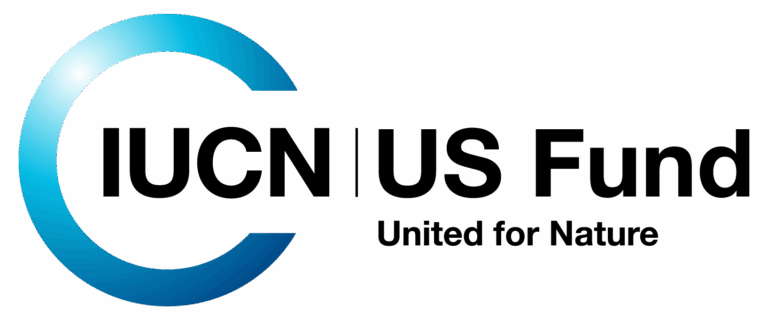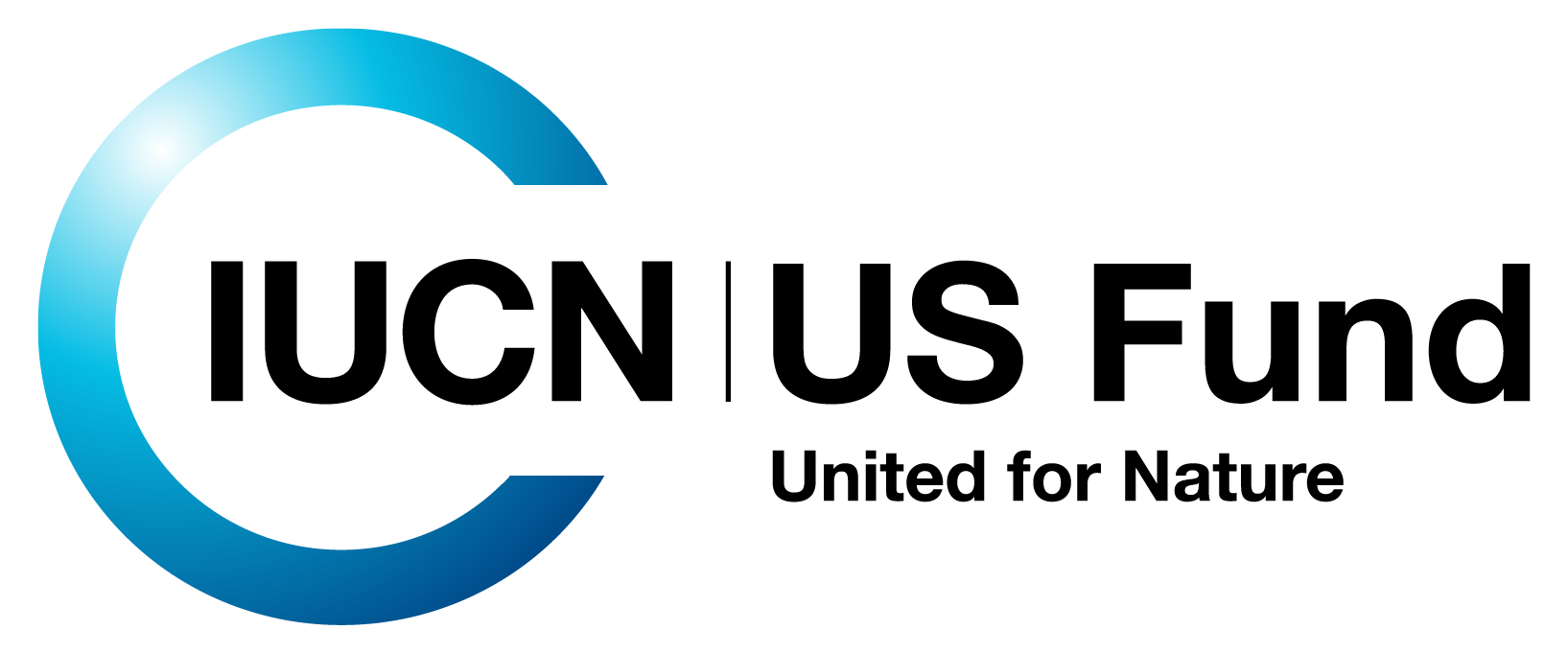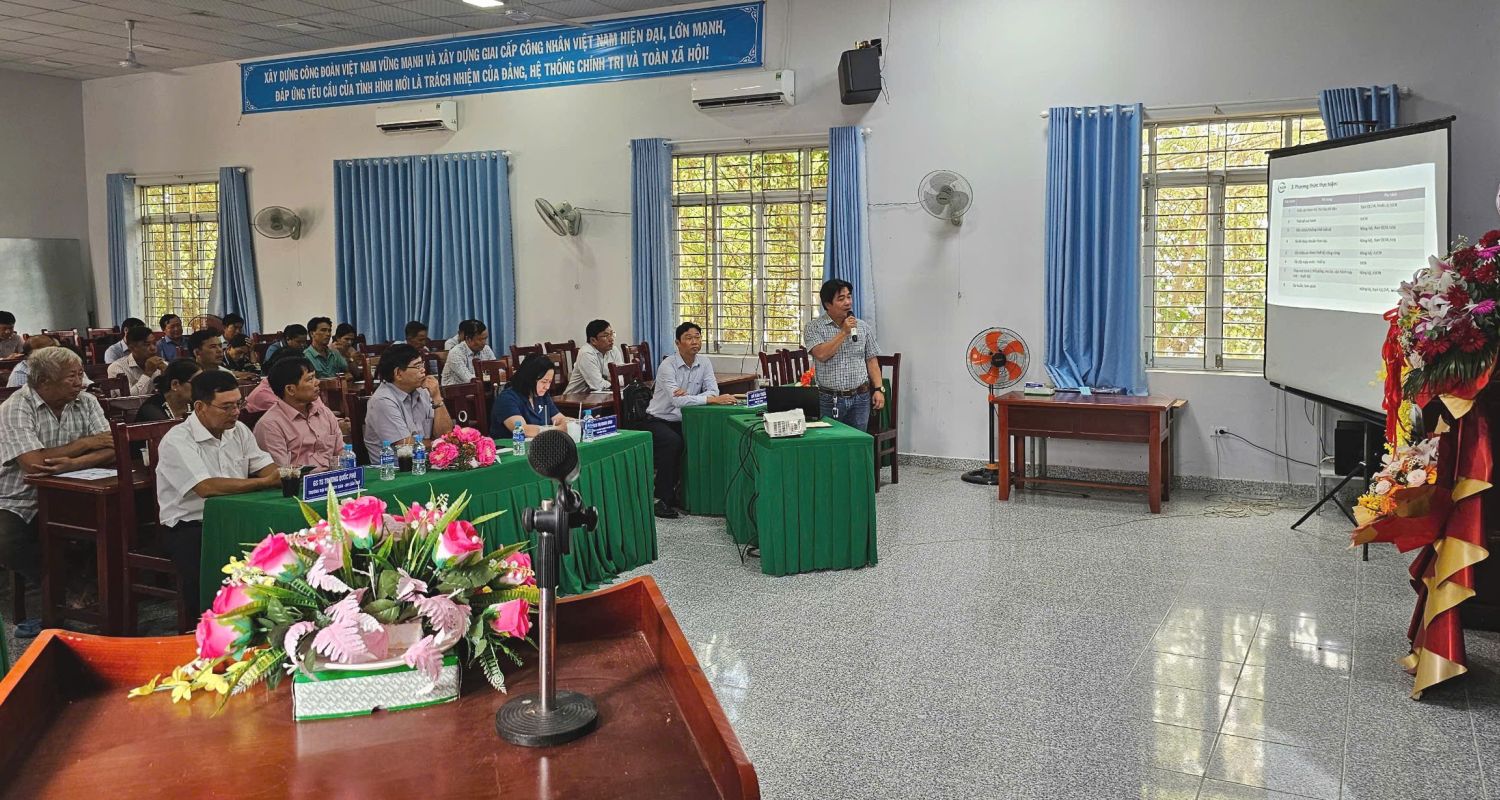Along the coast of the Mekong Delta in Soc Trang and Bac Lieu provinces, intensive shrimp farming and sea level rise are placing mounting pressure on the sustainability of local communities. Annually, the Mekong Delta experiences coastal erosion of up to 20 meters. At the same time, protective mangrove forests – crucial natural buffers – are rapidly disappearing. The forests are increasingly under threat from coastal squeeze – a phenomenon t where human-made structures such as sea dykes, concrete embankments, and shrimp farms prevent mangroves from migrating inland in response to rising seas. Earth dykes, concrete embankments, and shrimp farms have served as these barriers for coastal mangrove forests. Compounding this is severe coastal land subsidence, largely driven by excessive groundwater extraction, which is accelerating these sea level impacts at a rate five times higher than the global average.
To address these dangers to coastal livelihoods and mangrove environments, IUCN has been working with local communities and shrimp farmers to implement Nature-based Solutions (NbS) that promote sustainable production and coastal resilience. The IUCN-US grant funded project, Increasing coastal resilience in the Mekong Delta through Mangrove Restoration and Hybrid Nature-based Solutions, aims to both restore mangroves and integrate sustainable aquaculture practices. The project has two primary objectives: 1) mangrove restoration behind sea dykes to reinforce natural coastal defenses and 2) introduction of Recirculating Aquaculture Systems and Integrated Multi-Trophic Aquaculture (RAS-IMTA) to improve the sustainability and efficiency of shrimp and aquatic farming.
These practices optimize water use (reducing the need for groundwater), reduces disease risk, and increases product quality and productivity. To implement RAS-IMTA, IUCN Viet Nam held a series of training workshops throughout the spring.
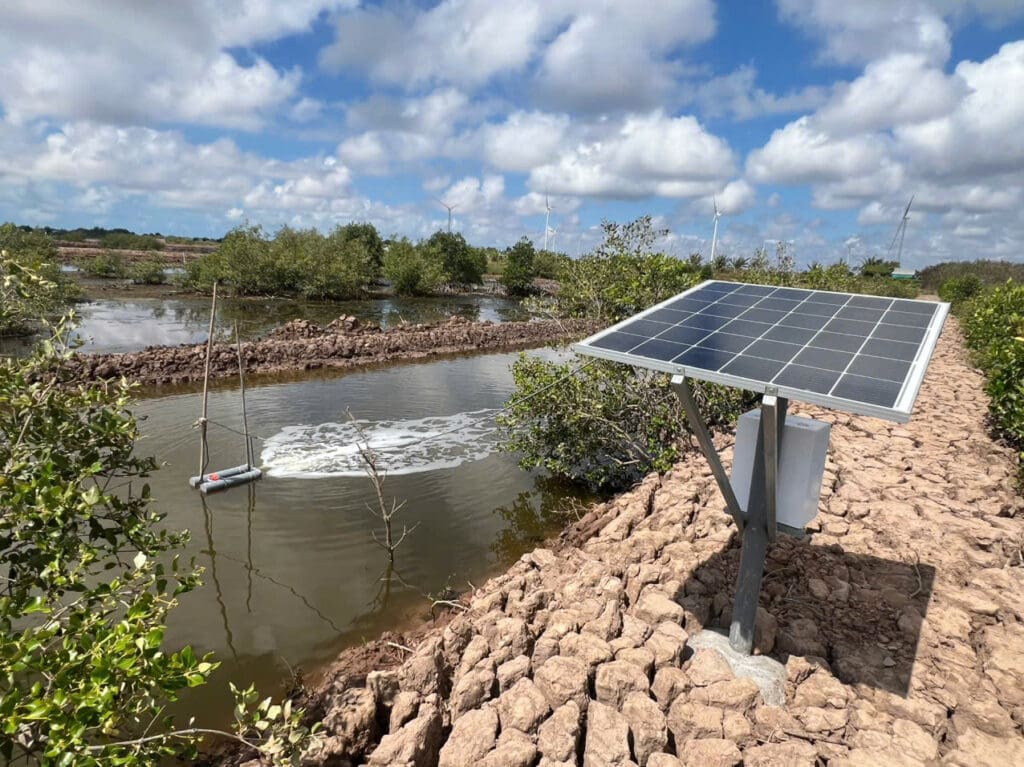
Training 1: Vinh Hau Commune
On 27 April 2025, the first training session was held in Vinh Hau Commune, Bac Lieu. 51 participants attended to gain hands-on knowledge on operating RAS systems and adopting sustainable farming practices for shrimp, crab, and other aquatic species. In addition to the valuable training session, IUCN installed RAS in 7 households in Bac Lieu. The installation included provisions of the technology, operational training, and practical guidance specifically tailored to each household.
Training 2: Vinh Chau and Cu Lao Dung
Subsequent sessions were conducted on 29 April and 23 May 2025 in Vinh Chau and Cu Lao Dung districts, respectively. The trainings, organized by the Sub-Department of Fisheries (Sub-DFISH), included over 200 participants across the two sessions. T Workshops covered aquaculture disease management, focusing on Microsporidian disease (EHP) and White Faeces Syndrome, including their symptoms, causes, transmission, and prevention strategies.
In Soc Trang, Sub-DFISH also presented updates on provincial aquaculture activities and shared their implementation plan for the second and third quarters of 2025. Both sessions concluded with a presentation from IUCN on project progress, including interactive discussions to collect feedback and assess understanding. The Cu Lao Dung training featured input from GIZ, which is also implementing RAS models in the province. IUCN and GIZ are exploring synergies to enhance collective impact and scalability.
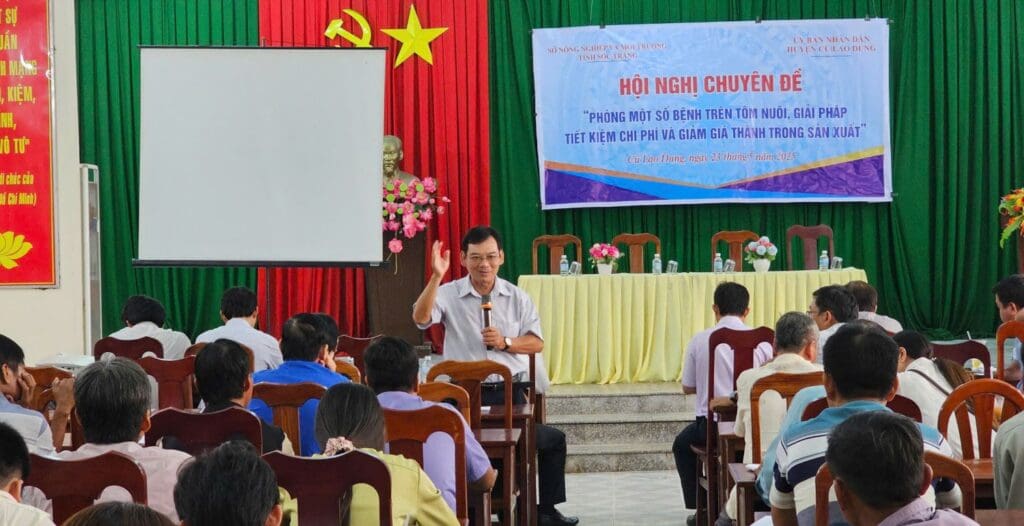
Takeaways
These training sessions mark a critical milestone in the project’s implementation, showcasing IUCN’s human- and nature-centered approach to NbS. By addressing environmental, social, and economic challenges in an integrated manner, the project demonstrates how local livelihoods and ecosystems can be strengthened together.
This initiative is funded by The Coca-Cola Foundation and will continue through 2026.
